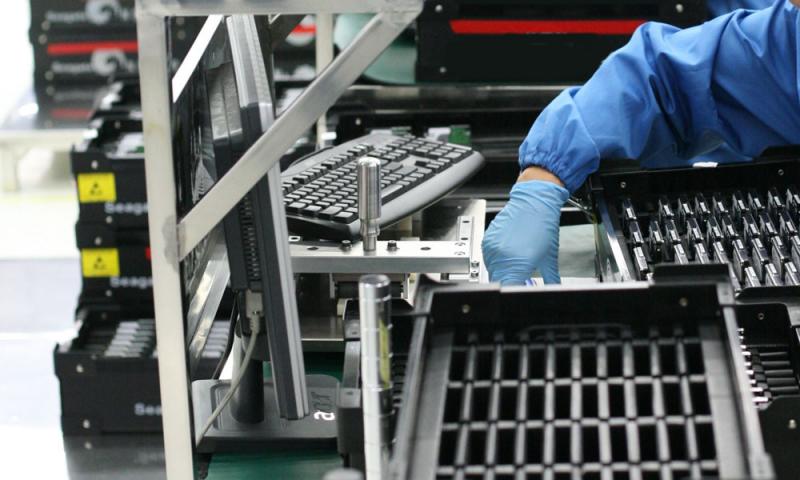Approved investments up 1.7 pct to RM208b in 2019 - Mida
Malaysia attracted RM207.9 billion worth of approved investments in the manufacturing, services and primary sectors last year, up 1.7 percent compared to 2018.
The Malaysian Investment Development Authority (Mida) said domestic direct investment accounted for the bulk of the total approved investments - 60.4 percent or RM125.5 billion.
Foreign direct investment (FDI), though only making up 39.6 percent, recorded a 2.9 percent growth to RM82.4 billion, Mida said in a statement today.
It said the services sector led the way for investments approved, which grew by 11.3 percent from 2018. A total of 4,087 projects were approved, with investments valued at RM118.1 billion last year.
This was followed by the manufacturing sector with approved investments of RM82.7 billion and the primary sector at RM7 billion.
Three countries accounted for 66.3 percent of total FDI approved in the manufacturing, services and primary sectors: the United States (RM26.8 billion), China (RM15.7 billion) and Japan (RM12.1 billion).
Four states contributed more than 60 percent of the total approved investments for 2019. They are Selangor (RM47.8 billion), Penang (RM33.7 billion), Johor (RM24.4 billion) and Kuala Lumpur (RM21.6 billion).
In the services sector, Mida said the top five investment contributors were real estate (RM40.9 billion), utilities (RM32.6 billion), global establishments (RM11.8 billion), distributive trade (RM11.7 billion) and support services (RM5.7 billion).
For the manufacturing sector, the number of projects approved jumped 37 percent to 988 projects from 721 projects in 2018.
FDI accounted for 65.2 percent (RM53.9 billion) of total approved investments in this sector, while domestic investments constituted the remaining 34.8 percent (RM28.8 billion).
On the sector’s top-performing industries in 2019, the agency said they were electrical and electronics (RM25.7 billion), paper, printing and publishing (RM10.8 billion), transport technology (RM8 billion), non-metallic mineral products (RM6.9 billion), and chemicals and chemical products (RM4.8 billion).
"It is noteworthy that investments in the three catalytic sub-sectors, namely electrical and electronics, machinery and equipment and chemical, and two high growth areas – aerospace and medical device – recorded an increase of 90.2 percent to RM40.9 billion last year from RM21.5 billion in 2018,” Mida said.
Both China (RM15.3 billion) and the US (RM14.2 billion) were the two top investor countries in the country’s manufacturing sector, contributing 54.7 percent of the total foreign investments approved in the sector, it said.
Mida also noted that Selangor (RM17 billion) was the largest recipient of investments in the manufacturing sector last year, followed by Penang (RM16.9 billion), Kedah (RM11.5 billion) and Johor (RM11.5 billion).
For the primary sector, investments approved slipped to RM7 billion from RM10.9 billion in 2018, with the mining sub-sector leading the bulk (94.3 percent) of investments.
The rest of the investments were from the plantation and commodities sub-sector, and the agriculture sub-sector, which registered sustainable investments of RM291.4 million and RM135.1 million, respectively.
Senior Minister and Minister of International Trade and Industry (Miti), Mohamed Azmin Ali, said while the Covid-19 pandemic has changed the global industrial system, Miti is committed to ensuring Malaysia continues to be positioned as an investor-friendly location for long term growth of both foreign and domestic businesses.
"FDI is a long-term capital flow. We trust that the existing foreign companies will continue to weather the storm and retain their investment in the country.
"Malaysia kick-started this year with five approved manufacturing and services projects worth RM4.6 billion. The priority now is to bring in high value-added investments that can help to revive the economy,” he added.
He said as business as usual approach will no longer work in this challenging environment, a fundamental solution for the country to revitalise the economy is through adopting bold initiatives to ensure impactful accomplishments.
"Closer partnerships between federal, states and local authorities will be of the essence in facilitating our investors and ensuring the implementation of approved projects.
"All stakeholders need to make the necessary changes and re-engineer processes to deliver more efficient and effective services. Digitalisation and automation is indeed the way forward,” he said. - Bernama
Keep up with the latest information on the outbreak in the country with Malaysiakini's free Covid-19 tracker.
Malaysiakini is providing free access to the most important updates on the coronavirus pandemic. You can find them here.
Help keep independent media alive - subscribe to Malaysiakini.
RM12.50 / month
- Unlimited access to award-winning journalism
- Comment and share your opinions on all our articles
- Gift interesting stories to your friends
- Tax deductable

 Bernama
Bernama